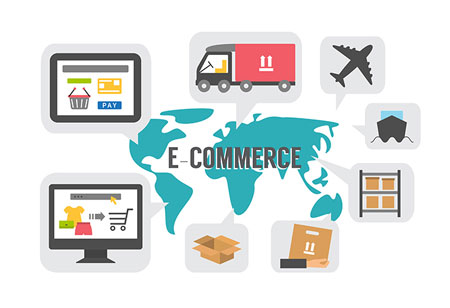THANK YOU FOR SUBSCRIBING
Four Powerful Ways AI is Shaping the Future of E-Commerce
Artificial Intelligence introduction in the e-commerce market, it has evolved the way we shop and trade; it has radically enhanced the entire buy-sell experience for both buyers and sellers.

By
Apac CIOOutlook | Thursday, January 01, 1970
Stay ahead of the industry with exclusive feature stories on the top companies, expert insights and the latest news delivered straight to your inbox. Subscribe today.
Artificial Intelligence is trying to embed itself in all aspects of our lives. It is anticipated that soon AI will be adopted majorly by all the tech behemoths, where Google and Microsoft have already invested hugely in this. With AI's introduction in the e-commerce market, it has evolved the way we shop and trade; it has radically enhanced the entire buy-sell experience for both buyers and sellers.
• Chatbots
In the era of AI in e-commerce, Chatbots cannot go without a mention. The chatbots are available on the home page of e-commerce websites and mobile applications; these are AI-based computers that are modified in a manner to communicate with the clients in a customized way.
E-commerce chatbots help purchasers in searching for the correct item, checking item accessibility, comparing numerous articles, lastly, helping make the payment. Chatbots also aid in connecting with the customer care personnel in case of any queries or complaints. Buyers can communicate with these machines through text, voice and sometimes images as well. Without employing manual labor, chatbots empower organizations to add an individual touch to the connection between the AI and clients.
Check out: Top Artificial Intelligence Companies
• Predictive Sales
Profound learning, statistical programming and predictive analysis of large informational indexes are possible with AI algorithms. Organizations use these techniques to understand their customer's behavior. Predictive sales likewise help in sorting out and dealing with the stock of the warehouses, guaranteeing that the organization is well stocked, particularly with the items that have a higher demand.
• Recommendation Engines
Recommendation system or recommendation engine lets the algorithm developer predict what a user prefers among the list of given products. For Instance, Amazon has employed recommendation systems to identify the target audience for products. AI algorithms record the critical data depending on the products being searched and after that generates the appropriate recommendation for the browser and lists them on their dashboard to help them find the relevant product.
• Warehouse Automation
An essential segment of the e-retail industry, warehousing tasks assume a critical part in choosing the pattern of sales for an organization. The Beijing-based organization, JD.com with Siasun Robot and Automation Co Ltd., utilized robots to support warehouse procedures, for example, parcel sorting, packaging, and categorizing. The speed and productivity of the arranging instruments and the conveyance plan for the items were improved.
While there are just a couple of ways by which AI has shaped e-commerce business today, the versatility and its effect is anticipated to increase in the future. The expansion will permit identification of excellent prospects, building better client relations, boosting deals, and bridging the gap between personalization and privacy.
Few Top Artificial Intelligence Companies (Alan, Passage AI, ThirdEye Data)





